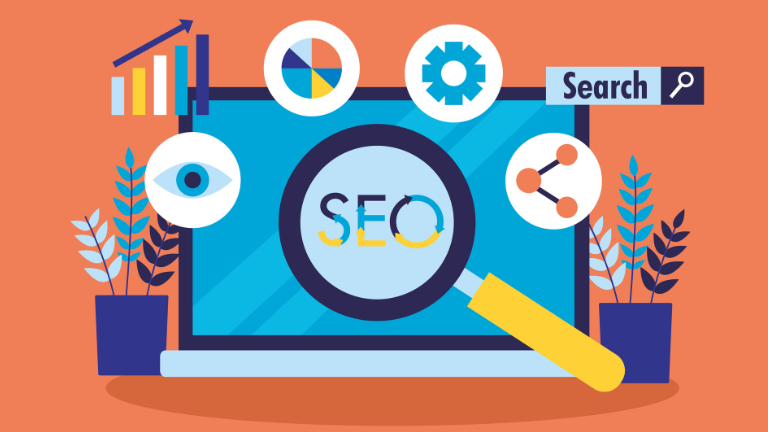With digital presence consistently rising across the globe, companies, brands, and professionals are willing to gain more and more visibility online. Whether it’s a small blog, small business, or a big international company, the success of their online presence is determined by how effectively they can gain the desired attention and engagement of their target audience. Two of the most important puzzle pieces in gaining digital success are content marketing and search engine optimization (SEO). When used together, these tactics drive traffic, increase brand awareness, and result in long-term business growth.
Read the entire blog to understand how content marketing and SEO form a winning combination for the digital age!
Understanding Content Marketing and SEO
Content marketing is the process of creating and publishing valuable, relevant, and consistent content to attract and engage a specific audience. It consists of blogs, videos, social media posts, eBooks, podcasts, case studies, and infographics. The main purpose of content marketing is to develop content that connects with your audience to establish a relationship, generate engagement, and eventually convert prospects into loyal customers.
SEO, by contrast, is the process of optimizing your content and website to rank higher in search engine results pages (SERPs) for keyword and phrase terms that are related to your business.
The Connection Between Content Marketing and SEO
Though content marketing and SEO appear to be two different things, when looked closely, they are significantly connected to one another. While content marketing aims to produce impactful content that pulls in and holds users, SEO ensures that this content is discovered by the intended audience at the right time.
Let’s learn how content marketing and SEO can collaborate to achieve digital success.
Why Content Marketing Needs SEO
1. Maximized Visibility and Traffic: SEO and content marketing are like brothers from another mother. Good content by itself is not sufficient if it does not get found. SEO guarantees that your content is seen in search engine listings for relevant searches. Without SEO, even excellent content may remain hidden in the vast sea of online content. SEO optimizes your content, which gets more visible and raises its potential for attracting organic traffic from search engines such as Google.
2. Keyword Research and Targeting: SEO in content marketing assists to determine the appropriate keywords your audience is looking for. By mapping your content with these keywords, you can produce articles, blog posts, videos, and other relevant content pieces that actually respond to the search intent of your target audience. Keyword research helps make sure that what you produce has relevance to what your potential buyers are searching for, resulting in increased engagement and conversion rates.
3. Enhanced User Experience: SEO is not only about gaining a higher ranking on search results but also about enhancing the user experience. Both SEO and content marketing, when go hand-in-hand, can make the desired impact. Search engines favour sites with a good user experience, such as fast loading, mobile responsiveness, and simplified navigation. Content marketing comes in handy here by producing interesting, informative, and user-friendly content that provides value. When users are able to find what they are looking for easily and quickly, they tend to spend more time on your site, engage with your content, and eventually convert.
Why SEO Needs Content Marketing
1. Fresh, Relevant, and Engaging Content: SEO changes every day, with search engines such as Google applying sophisticated algorithms to rank sites. While these depend on numerous factors, fresh, high-quality content is perhaps the most significant ranking factor. By regularly releasing relevant and new content, you indicate the search engines that your website is dynamic and powerful. SEO gains its true impact from a constant stream of new and compelling content that responds to the aspirations of your audience.
2. Improved Engagement and Dwell Time: Content marketing and SEO are inevitable for a highly engaging digital presence. SEO is not merely about traffic, it’s also about retention. Google and other search engines factor in metrics like bounce rate and dwell time to rank pages. If users visit your website but immediately bounce off (high bounce rate), it’s a bad sign for search engines. Content marketing fills this gap by giving useful, engaging content that gets visitors to linger longer, visit more pages, and engage with your brand.
3. Building Backlinks and Authority: Link building is one of the most important parts of off-page SEO. Backlinks – links pointing to your website from other websites – are a measure of authority and credibility. Quality content is an effective weapon for getting backlinks. If other websites and influencers value your content, they will be likely to link to it, boosting your domain authority and SEO rank. An effective SEO content marketing strategy can ensure credibility in the long run.
How Content Marketing and SEO Interact
1. Developing SEO-Ready Content: SEO and content marketing must always go hand-in-hand. Be it SEO best practices or content marketing techniques, it is important to ensure that they are aligned with one another for utmost efficacy. This entails adding targeted keywords to your content organically, title and meta description optimization, the use of headers and sub-headers, and adding internal and external links. Adhering to SEO protocols makes your content rank better in search results, attracting organic traffic to your site.
2. Topic Clusters and Pillar Content: One of the SEO content marketing strategies that complement one another is building topic clusters around a pillar page. The pillar page is an in-depth, authoritative piece of content that addresses a wide topic, while the cluster pages are more detailed articles that point back to the pillar page. This organization not only aids in SEO by grouping content based on keywords but also improves user experience by facilitating easy discovery of related content by visitors.
3. Content Strategy for Various Buyer Stages: Wondering what role do content marketing and SEO play in preparing content strategy? SEO can be used to identify various stages of the buyer’s journey through analysing keyword search intent. Content marketing can then produce targeted content for each stage. This strategic plan aligns SEO with the customer journey so that the appropriate content is delivered to the appropriate audience at the right time.
4. Measuring Success and Refining Strategies: Content marketing and SEO are both data-driven approaches. Through monitoring key performance indicators (KPIs) like organic traffic, keyword rankings, engagement rates, and conversions, you can measure the success of your efforts. This information enables you to refine your content marketing and SEO strategies to continually achieve improved results over time.
Summing Up
In today’s fiercely competitive online marketplace, search engine optimization and content marketing are vital weapons to achieving online success. Together, these two approaches can help companies produce meaningful, engaging content that performs well in search engines, draws organic traffic, and fosters long-term relationships with their audience. SEO, without content marketing, can result in high rankings but lack substantial content to engage and convert users. Similarly, content marketing in the absence of SEO, can produce great content but gain minimal visibility.
When used collectively, content marketing and SEO build a synergistic impact that launches your brand ahead of competition, building sustainable growth and online success. By repeatedly creating quality content, optimizing it, and tracking results, you are able to place your brand in the position for sustainable success in today’s digital landscape.












